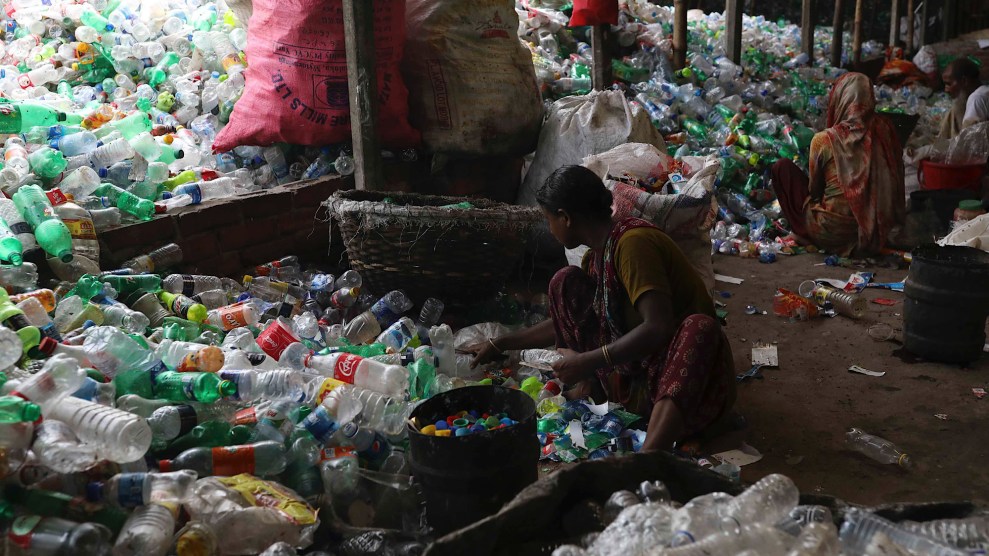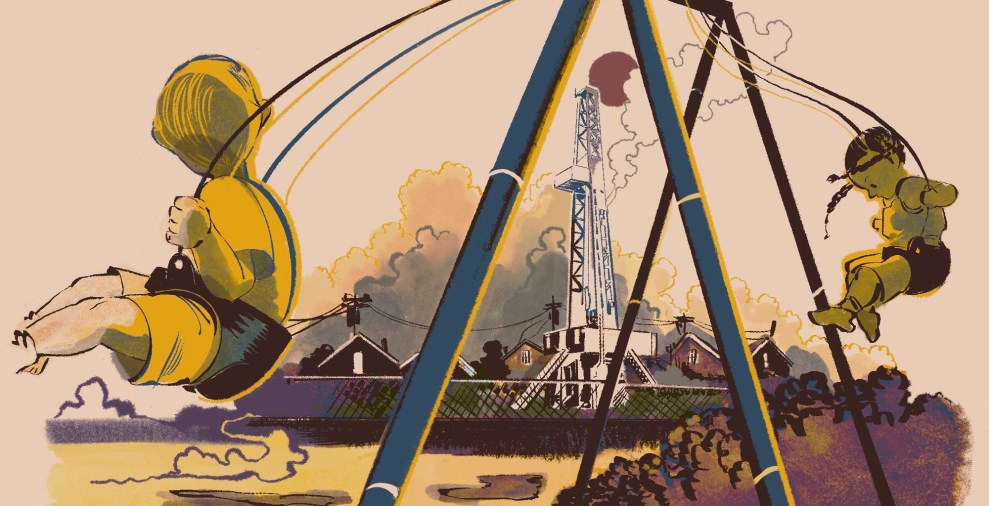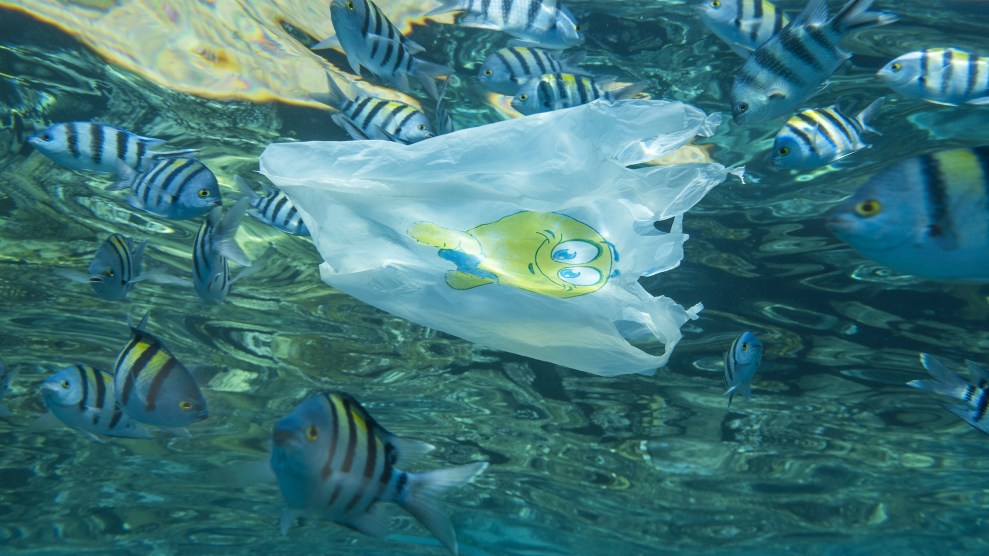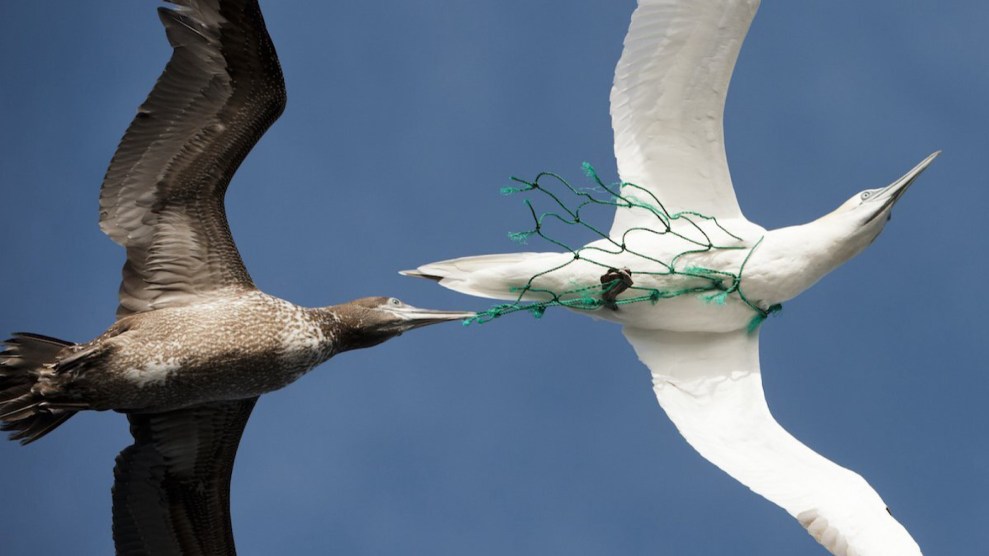
Laborers sort through polyethylene terephthalate (PET) bottles at a recycling factory in BangladeshKazi Salahuddin Razu/NurPhoto/Getty Images
This story was originally published by the Guardian and is reproduced here as part of the Climate Desk collaboration.
Plastic bottles have been converted into vanilla flavoring using genetically engineered bacteria, the first time a valuable chemical has been brewed from waste plastic.
Upcycling plastic bottles into more lucrative materials could make the recycling process far more attractive and effective. Currently plastics lose about 95 percent of their value as a material after a single use. Encouraging better collection and use of such waste is key to tackling the global plastic pollution problem.
Researchers have already developed mutant enzymes to break down the polyethylene terephthalate polymer used for drinks bottles into its basic units, terephthalic acid (TA). Scientists have now used bugs to convert TA into vanillin.
Vanillin is used widely in the food and cosmetics industries and is an important bulk chemical used to make pharmaceuticals, cleaning products and herbicides. Global demand is growing and in 2018 was 37,000 metric tons, far exceeding the supply from natural vanilla beans. About 85 percent of vanillin is currently synthesized from chemicals derived from fossil fuels.
Joanna Sadler, of the University of Edinburgh, who conducted the new work, said: “This is the first example of using a biological system to upcycle plastic waste into a valuable industrial chemical and it has very exciting implications for the circular economy.”
Stephen Wallace, also of the University of Edinburgh, said: “Our work challenges the perception of plastic being a problematic waste and instead demonstrates its use as a new carbon resource from which high value products can be made.”
About 1 million plastic bottles are sold every minute around the world and just 14 percent are recycled. Currently even those bottles that are recycled can only be turned into opaque fibres for clothing or carpets.
The research, published in the journal Green Chemistry, used engineered E coli bacteria to transform TA into vanillin. The scientists warmed a microbial broth to 37 Celsius for a day, the same conditions as for brewing beer, Wallace said. This converted 79 percent of the TA into vanillin.
Next the scientists will further tweak the bacteria to increase the conversion rate further, he said: “We think we can do that pretty quickly. We have an amazing roboticised DNA assembly facility here.” They will also work on scaling up the process to convert larger amounts of plastic. Other valuable molecules could also be brewed from TA, such as some used in perfumes.
Ellis Crawford, of the Royal Society of Chemistry, said: “This is a really interesting use of microbial science to improve sustainability. Using microbes to turn waste plastics, which are harmful to the environment, into an important commodity is a beautiful demonstration of green chemistry.”
Recent research showed bottles are the second most common type of plastic pollution in the oceans, after plastic bags. In 2018, scientists accidentally created a mutant enzyme that breaks down plastic bottles, and subsequent work produced a super-enzyme that eats plastic bottles even faster.











